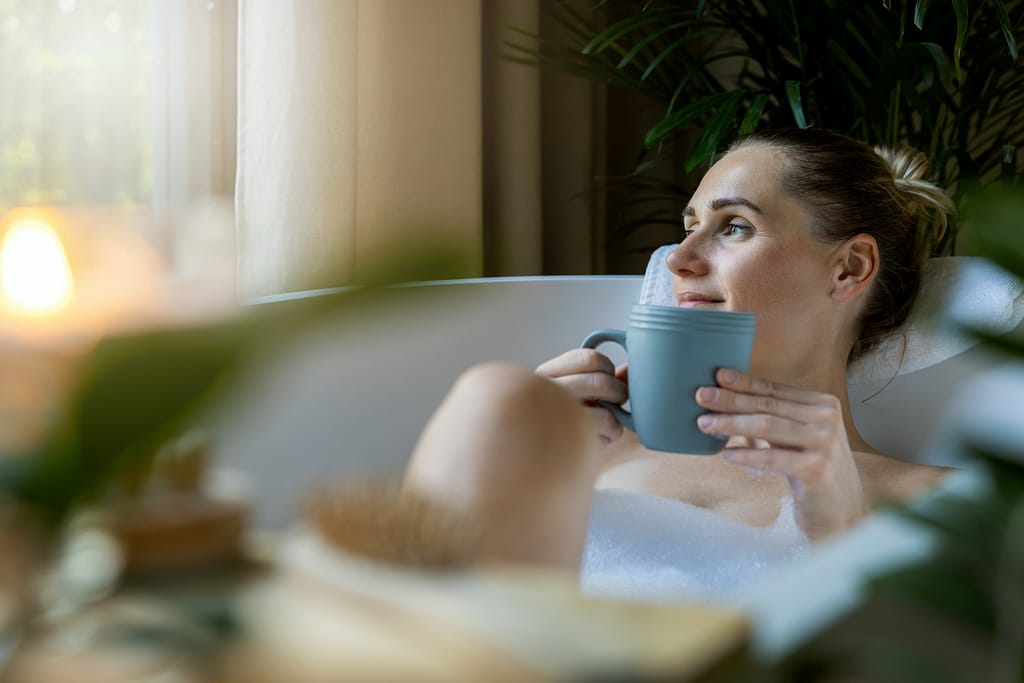Prioritising Self-Care to become the best parent you can be
Becoming a parent changes so much in a person’s life and self-care becomes so important. Everything is turned upside down as this new life enters the fold. You must learn to compromise with this tiny human who doesn’t know anything but survival.
So, while parenthood can be immensely rewarding, it does come with so many demands. Both physically and mentally. When you have a baby your days of uninterrupted sleep are gone. The ability to drop everything and go out by yourself seems like a thing of the passed. In the beautiful chaos of raising a child, it’s easy for you to forget one essential thing: yourselves.
Burnout
There is a toxic trend in parenting and that’s the belief that you have to excel at every aspect of parenting or you’re not good enough. This is rubbish. It takes a community to raise children, and we’ve lost that community. Putting all the strain on the parents causes burnout.
The family unit can only thrive if you as the caregivers are looking after yourselves. If you get overwhelmed and overtired, you will not be the best version of yourself. So, whenever you think self-care is selfish, think again. It’s to ensure the happiness of your whole family. Your mental health is important.
Parental burnout is seldom discussed. I for one know that if you talk negatively to the wrong person, then all you get is “Well you chose to have children.” This then puts you off talking about it again to others. Burnout is characterised by frustration, exhaustion and emotional depletion. You find yourself in a neverending cycle of child-raising, housework and career. Feeling as if there will never be time for you.
The Physical Toll
Neglecting self-care can take its toll on you physically and it can become another never-ending cycle. Sleep deprivation becomes the norm, leading to a lack of energy to take care of yourself physically. You start eating the wrong foods out of convenience leading to lower energy. In a constant state of low nutrition, tiredness and stress, illnesses take hold more often. It can feel like such a huge obstacle you have to overcome to start looking after your physical well-being, but you need to put the things in place to make it work.
Don’t jump in head first, take it slow. Change little things so that they have a chance of becoming a part of your life. If you go all in you will get overwhelmed and fall back where you were.
The Emotional and Mental Weight
Your mental health is important, and burnout can put a strain on your mental health. When you have burnout you can suffer emotionally. A sense of overwhelm, helplessness and resentment can set in. You have no patience and start to get stressed easily, reacting to your children in a way that makes you feel like a bad parent. You start feeling guilty that you can’t be this “perfect” parent. That does NOT exist, may I add. All this turmoil inside can put a strain on your family.
Remember, ask for help. Asking for help when you need it is not a sign of weakness, but a sign of strength. You have noticed you need help and have taken the steps to help yourself.
The Impact on Children
As mentioned above, when you are burnt out, you start to lose your ability to reason. You are exhausted. You can’t handle the stress and you lose your patience easily. Children can sense when something is off with their parents.
Self Care

Self-care is not selfish, it is essential to ensure the smooth running of a household. When you take the time for self-care, you are also teaching your child that taking care of themselves is important.
Misconceptions
Self-care is selfish: Self-care is not about neglecting your responsibilities and only thinking of yourself. It is ensuring you are in the best place to carry out your responsibilities effectively.
Self-care is a luxury: People think that self-care is only for those with ample free time and money. This is just not true. Self-care can be anything, even if it is just a few minutes a day to practice mindfulness or keep up a hobby.
Self-care is just pampering: Ergh. It is anything that nourishes you. This is different for everyone. Maybe some people do like a spa break, but others might be happy journaling or exercising. One of my forms of self-care is bouldering. It requires me to focus on my whole body.
Self-care is optional: It should never be. Your children’s needs are important, but you can’t meet them if you are burnt out, and you’re not neglecting them by taking 10-15 minutes a day to recentre yourself.
Self-care is a quick fix: Nope. It is something that needs to be a part of your routine. This ensures that you don’t drop into burnout again.
Finding the time
Scheduling Self-care: As parents, we spend so much time scheduling things for our children. From playdates to sports and everything else. Yet we don’t think to schedule in time for ourselves. We may have children, but we still have needs. Make self-care a part of your routine.
Prioritising Self-care: It can be hard to prioritise something that you feel is selfish. So, let’s get rid of that mindset and realise that self-care is important and benefits the whole family.
Setting Boundaries: Communication is key. Talk to your partner about how you are feeling and how you can both schedule some separate self-care time. Explain how you’re feeling and how self-care will benefit the whole family.
Enjoy the little things: From day to day you may not have large chunks of free time, so savour the small moments. Take a few seconds to take some deep breaths or savour a cup of tea. These little moments throughout the day can make a difference to your well-being.
Incorporating self-care into your daily routine: You could listen to relaxing music on your commute. Include your children in some yoga to help promote self-care.
Seek Support: You can’t do everything by yourself. Be strong and get help when you need it. Ask family or friends for support when you need it. Only ask those who won’t make snide comments about you needing time to yourself. No one needs that.
Self-care strategies
Self-care isn’t just about your physical appearance, it is also about your emotional and mental well-being. So, it is important to tend to each of these in a way that works for you.
Physical Well-Being
This is about nurturing your body and maintaining your energy. One way can be by incorporating regular exercise into your daily routine. It doesn’t have to be time-consuming, but something that makes you feel fulfilled. A daily jog, yoga or some simple stretching.
What a lot of people don’t realise is that what you eat can have an effect on your mental health. Try to eat nutritious foods that help to sustain energy, and stay away from too much “quick fix” foods such as caffeine and sugar.
Sleep can be hard when you have children, but it can help to establish a routine around sleep. Create a sleep-friendly environment, and switch off screens before starting your routine.
Emotional and Mental Well-Being
I don’t know about you but I wasn’t brought up emotionally healthy. Negative feelings were frowned upon or silly. I was taught to not cause a fuss and just let things slide. This isn’t healthy. An important part of self-care is being able to recognise your feelings, be able to voice what you need and create strategies to help with emotional resilience.
Meditation can help to centre you and help with emotional balance. Taking a few minutes a day to practice mindfulness can help you manage things like stress.
I started journalling when I realised there was so much in my head that I couldn’t keep track. Journalling helped me to focus on one thing at a time, express how I was feeling and process my emotions.
Depending how you view emotions, depends on whether you find it hard to ask for help. Sometimes you need someone else to pull you out of your head and see things from a different point of view. Seeking the use of a therapist is not a weakness.
Do you play an instrument or love to paint? Finding a passion and losing yourself in it can help your mental health. As well as intellectual stimulation. Reading books or exploring new subjects is good for your brain.
Don’t put so much on yourself that you get overwhelmed. Try to prioritise and set reasonable goals. Everything doesn’t have to be done now, these things need time.
Self-care rituals for busy parents
It can feel as if there is not enough time in the day to fit more things in. In between meals outings and play dates. Where is the time? Daily self-care doesn’t have to be time-consuming. It can be during naps or while you’re in the shower. Start your day half an hour before the children and have that time prioritised for you. I will keep reiterating that self-care is not selfish and there is nothing to feel guilty about. Busy parents can try out these self-care rituals.
Morning Meditation
I know a lot of people get up before the children to get things sorted for the day. Use a snippet of that time for yourself. Before you get out of bed stop and take a moment. Don’t pull out your phone and scroll. Close your eyes, inhale deeply and exhale slowly. This can help to centre you for the day ahead.
Mini-Meditations
This can be just 2 minutes, either scheduled in or when you start to feel overwhelmed. Step away and do some focused breathing to help reduce stress.
10 Minute Workouts
These little workouts can do wonders for your physical and mental well-being. For instance, they can be when you first get up or calmer before you go to bed. Getting your body moving can help your mood.
Daily Gratitude
Daily gratitude can be any time of day, for instance, just before bed, we partake in daily gratitude as a family. GLAD. This is grateful, learnt, achieved and delighted. This really helps us to think about the day and look at the positives that have come.
Tech-Free Time
Scrolling endlessly can have a negative impact on your mental health. Taking time away from screens is a must. Use the time to connect with your surroundings, and your family or to engage in a hobby. Really focus on the here and now.
Evening Wind-Down and Connection
Taking an hour or two before bed to relax and wind down can help you with your sleep. Disconnect from the outside world and really focus on you and your family.
Conclusion
Self-care is important and so is making it a lifelong habit to help establish a healthy mind and body. Remember it is not selfish. You are doing this for your whole family. While you are looking after yourself you are also teaching your children the importance of looking after their own physical and mental health, allowing them to grow into healthy adults.
Don’t overwhelm yourself. Take baby steps and make them a habit. As they become a fixture of your life, add other things that might help. Leave the guilt at the door and embrace self-care.

Leave a Reply